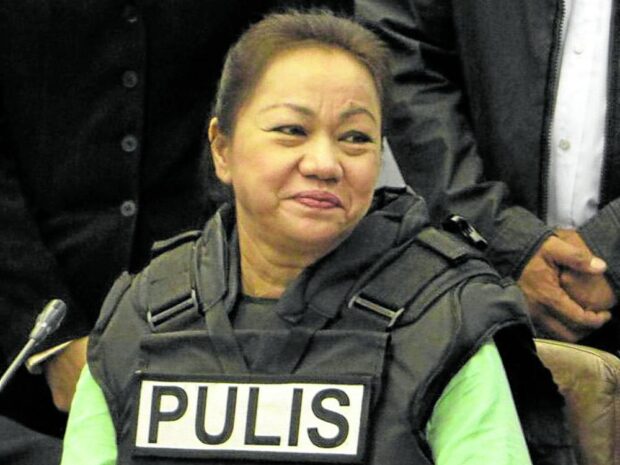Napoles cleared of plunder, convicted of corruption
Alleged “pork barrel queen” Janet Lim-Napoles has been cleared of plunder along with former Association of Philippine Electric Cooperatives party list Rep. Edgar Valdez but were convicted of other offenses over the alleged misuse of the latter’s Priority Development Assistance Fund (PDAF).
In a 108-page decision promulgated on Oct. 2, the Sandiganbayan’s Fifth Division said there was insufficient evidence to prove that Napoles and Valdez had amassed at least P50 million from the latter’s PDAF through kickbacks and commissions.
Citing the “variance” rule, the antigraft court found Valdez guilty beyond reasonable doubt of nine counts of direct bribery and sentenced him to up to 54 years in jail.
He was also ordered to pay a fine of P26.9 million.
Napoles, on the other hand, was found guilty of nine counts of corruption of a public official and was meted with up to 54 years of imprisonment. She was also ordered to pay the same amount of fine as Valdez.
The copy of the decision was made public on Tuesday as the Sandiganbayan’s website has been unavailable since Sunday.
The Sandiganbayan explained that the prosecution was able to prove that Napoles—through her former employee and now whistleblower Benhur Luy—and her other employees gave P8.9 million to Valdez as “rebates” or kickbacks.
The case stemmed from the alleged P57 million in kickbacks from the PDAF of Valdez.
READ: Court junks Napoles’ bid to be acquitted of plunder in PDAF scam
READ: Napoles cleared in one pork barrel case but convicted in another
“The inclusion in the Information of the predicate or overt acts constituting the elements of these felonies allows for the conviction of the accused under said crimes, respectively, without violating their rights to be informed of the nature and cause of the accusations against them,” the court said.
In dismissing the plunder charges against Napoles and Valdez, the court noted: “In sum, conviction must rest on hard evidence showing that the accused is guilty beyond reasonable doubt of the crime charged.”
“In criminal cases, moral certainty—not mere possibility—determines the guilt or the innocence of the accused,” the court added.
It also acknowledged that while the respondents’ evidence was weak, both Napoles and Valdez must be acquitted “when the prosecution has not proven guilt with the requisite quantum of proof required in all criminal cases.” INQ
































